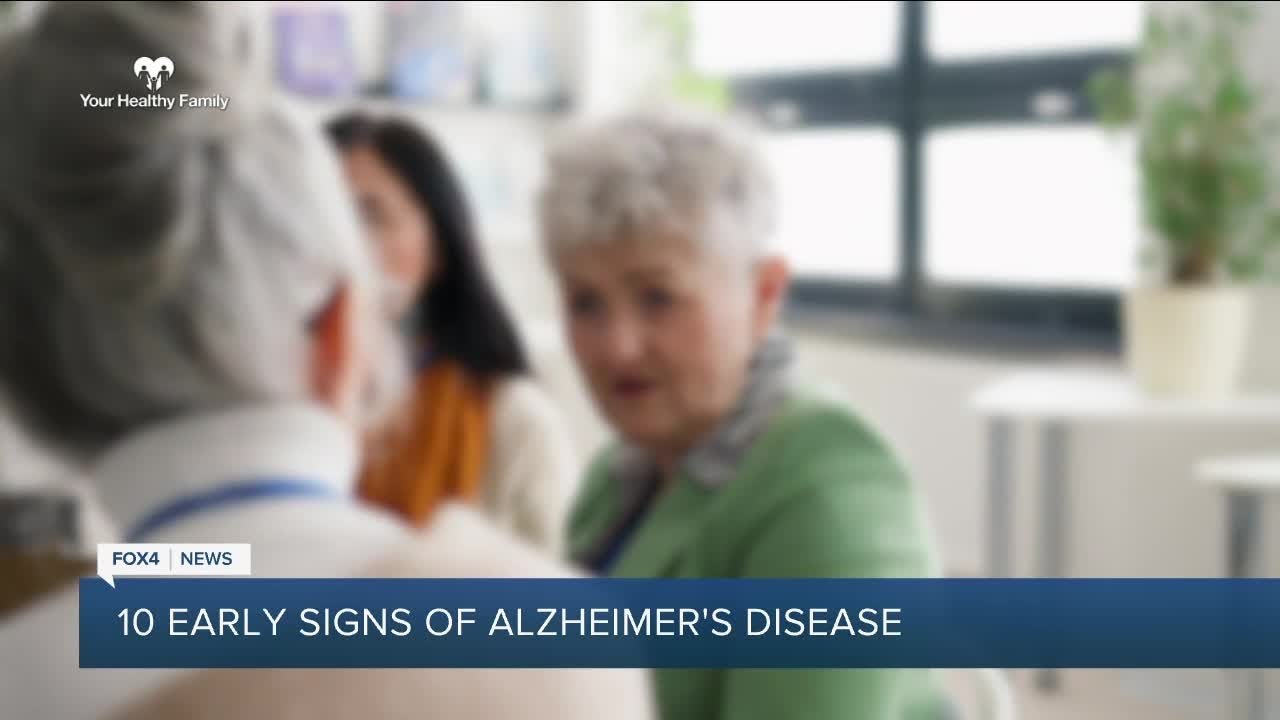As we grow older, our cognitive abilities start to decline, and it’s not always easy to tell whether it’s just normal aging or something more serious, like Alzheimer’s disease. That’s why it’s important to be aware of the early signs of this condition, which can help you seek medical attention and start treatment as soon as possible. In this article, we’ll explore 10 of the most common warning signs of Alzheimer’s disease and what you can do to support your loved ones who may be experiencing them.
Introduction
As time goes by, our bodies change and our brain function may decline, leading to a number of diseases, including Alzheimer’s disease. Detecting Alzheimer’s disease early can help slow the progression and give you more time to make decisions and plan for the future. Here are 10 early signs of Alzheimer’s disease that you should be aware of.
Memory Loss
Memory loss is one of the most common signs of Alzheimer’s disease. It is common to forget names or appointments, but those with Alzheimer’s disease may forget important dates or events, important people in their lives, and may ask for the same information repeatedly.
Difficulty Completing Familiar Tasks
Another early sign of Alzheimer’s disease is difficulty completing familiar tasks, such as driving to a familiar location or preparing a simple meal.
Changes in Mood and Personality
Those with Alzheimer’s disease may experience changes in mood and personality. They may become more easily confused, agitated, or withdrawn. Depression is also common.
Difficulty Communicating
Alzheimer’s disease can cause difficulty communicating. Those with Alzheimer’s may struggle to find the right words or may repeat themselves often.
Misplacing Items
Misplacing items is another early sign of Alzheimer’s disease. Those with the disease may put items in unusual places or may accuse others of stealing their things.
Poor Judgment
Alzheimer’s disease can cause poor judgment, which can be dangerous. Those with Alzheimer’s may make poor financial choices or make decisions that could harm themselves or others.
Changes in Vision Perception
Those with Alzheimer’s disease may have difficulty judging distance or recognizing colors, which can make it difficult to do daily activities like driving or cooking.
Difficulty Making Decisions
Making decisions can become difficult with Alzheimer’s disease. Those with the disease may struggle to make decisions about what to wear or what to eat, or may become indecisive about major life choices.
Difficulty Following Directions
Following directions can also become difficult with Alzheimer’s disease. Those with the disease may struggle to follow step-by-step instructions or may become easily confused by everyday tasks.
Withdrawal from Work or Social Activities
Lastly, Alzheimer’s disease can cause withdrawal from work or social activities. Those with the disease may become less interested in hobbies or may struggle to keep up with friends and family.
Conclusion
If you or a loved one is experiencing any of these early signs of Alzheimer’s disease, it is important to speak with a healthcare provider. Early detection is key when it comes to Alzheimer’s disease, and getting a diagnosis can help you plan for the future and make the most of the time you have. Remember, there is help and support available for those with Alzheimer’s disease and their caregivers, and it is never too early to seek that help.




































